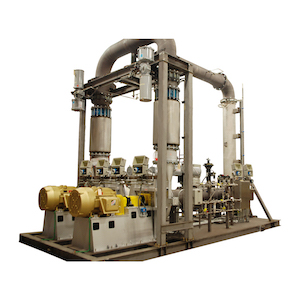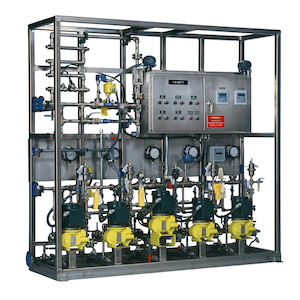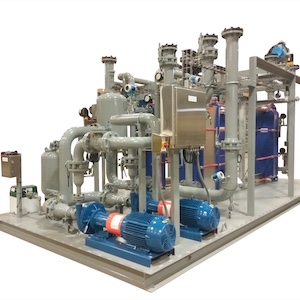The success of a modular process skid project begins with an understanding of how to specify process skids. The Carotek Process Skids Specification Guide outlines the advantages of custom process skids and how they can be specified.
Process Skid Costs can vary substantially depending on quality of components, welds and materials, as well as operating requirements. They can range from $25,000 to $3,000,000 and more, therefore each process skid must be estimated specifically for you.



